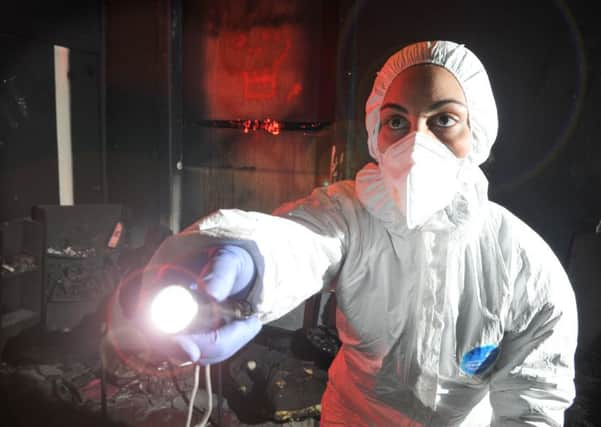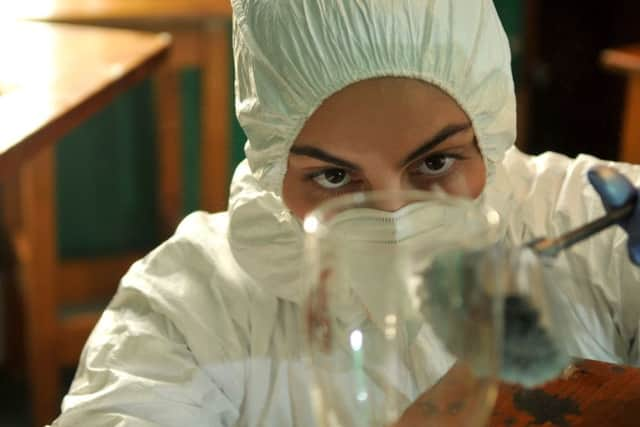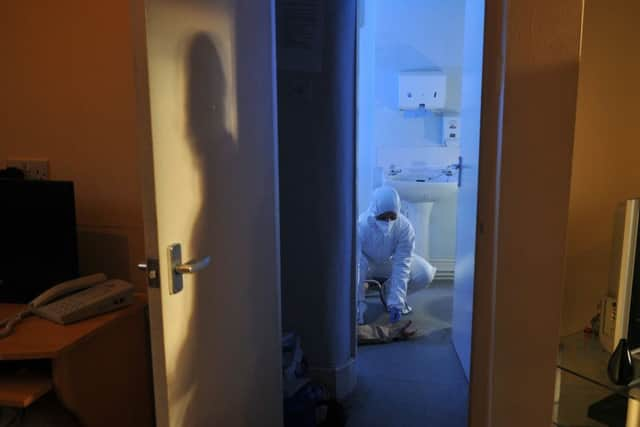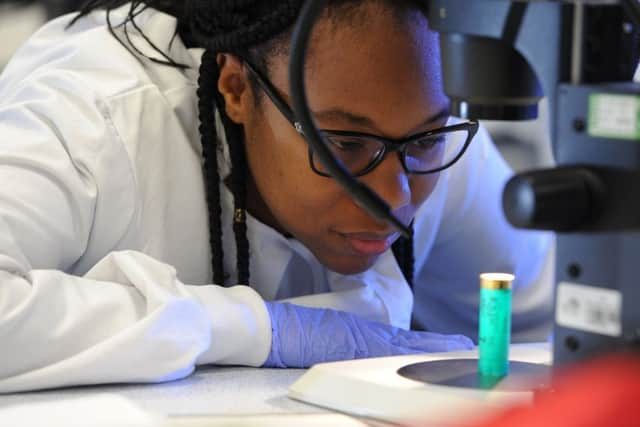How the next generation of forensic scientists are being trained in Preston


But these crimes scenes are not all they appear, and the staged scenes are in fact used to teach students from across the world cutting-edge forensic science techniques.
Deryck Sharples, course leader in Forensic and Applied Sciences at the University of Central Lancashire, is proud of the resource which has helped to train some of the country’s finest forensic scientists since 2001.
Advertisement
Hide AdAdvertisement
Hide AdHe said: “The Forensic Science and Criminology course launched in 2000 and students genuinely love it. Being able to teach the practical elements in this way is just one of the things that sets us apart.


“What makes us unique is that many of our members of staff are ex-crime scene investigators. When we set up at the crime scene houses, the scenes are often based on cases we have worked on and real problems we have had.
“We have five former CSI staff drawn from Greater Manchester Police, Lancashire Police and Merseyside Police so we have a good overview of the region.
“We all do things slightly differently and we need that insight from the different forces.”
Advertisement
Hide AdAdvertisement
Hide AdHe unlocks the door and as it swings open we can see a normal-looking living room with a sofa, pictures on the wall and a built-in kitchen.


But a slight smear of blood on a window and dusty fingerprints on doors betray a series of lessons taught to first years studying CSI techniques commonly used at a burglary.
The downstairs rooms are set up as domestic dwellings and upstairs is home to a bar, a post office, a fire scene and an anarchist’s bedroom complete with newspaper clippings pinned to the wall.
The rooms all hold different scenes, problems and questions for the students to explore and are put together to an extremely exacting standard, says Deryck.
Advertisement
Hide AdAdvertisement
Hide AdThe furniture in the fire room, for example, was burnt in a room of similar size at another location.


Mr Sharples highlights how it is possible to trace the spread of the fire from the corner of the room up to the ceiling.
A realistic-looking, slightly charred plastic corpse lies in the bed, its eyes staring at the ceiling.
He explains: “We ordered the bodies from a company called dappercadaver.com based in the States.”
Advertisement
Hide AdAdvertisement
Hide Ad“They come with some rather strange names like Elderly Edith and Burnt Sonia Cadaver but they’re really useful props.


“Somebody had to go and pick them up from the airport... they had a bit of explaining to do.”
In fact, the houses are littered with various gruesome bodies hidden in cupboards, lying in blood splattered baths or else hacked to pieces or hanging from drainpipes.
It highlights some of the more chilling encounters the budding forensic specialists might encounter during their carers.
Advertisement
Hide AdAdvertisement
Hide AdBefore joining UCLan two years ago, Mr Sharples worked for Lancashire Police as a CSI for 28 years.
“You never get used to the smell or some of the more shocking circumstances surrounding the death of somebody’s loved one,” he says. ”But there’s so much to remember as a crime scene investigator, if you make just one slip-up someone could walk free having committed a serious crime.
“Being able to focus on the processes we need to undertake to secure a conviction helps to keep your mind busy.”


The launch of the Lancashire Forensic Science Academy in the summer of 2017 in partnership with the Lancashire Constabulary, offers even more practical experience of live crime scenes for students.
Advertisement
Hide AdAdvertisement
Hide AdThird year student and teaching assistant Kristina Mavrangelidou from Cyprus values the hands-on approach the course offers.
“It’s a great opportunity and now we’re able to go out and work with the Lancashire Constabulary.”
First year student Theodores Zembyla, also from Cyprus, agrees.
“The practical element we have here was a very big part of why I chose to come to UCLan. I enjoy it, I cannot imagine working in any other field when I graduate.”
Advertisement
Hide AdAdvertisement
Hide AdAnd Mr Sharples hopes the course will support Theo when he graduates. “It’s all about employability - our students do really well and one of the most rewarding parts of teaching is hearing the students have got a job doing something they want to do.”